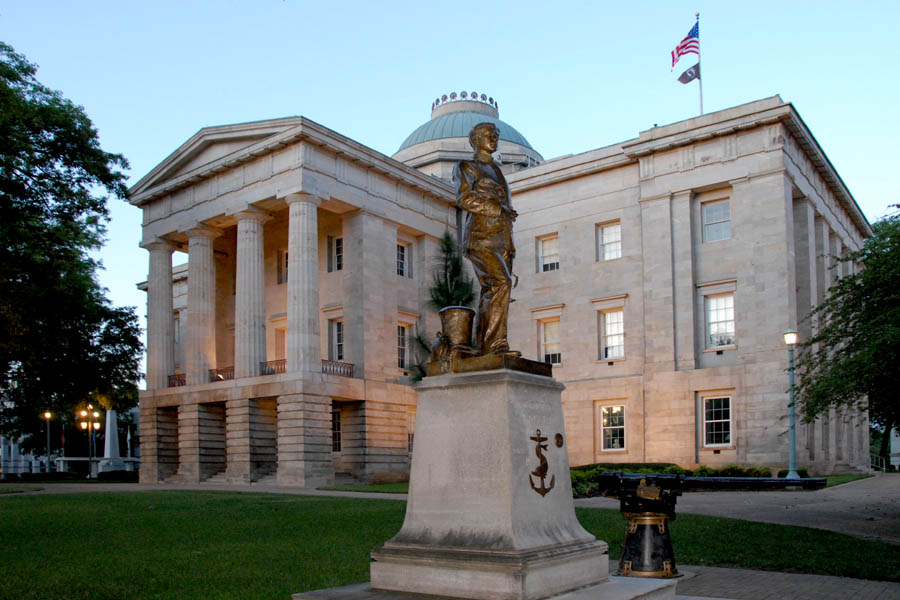
Special to Iredell Free News
RALEIGH — The N.C. State Capitol will close to the public beginning Wednesday, May 3, for construction and repair work, and will remain closed until further notice.
Completed in 1840, the Capitol is a National Historic Landmark. Work is underway to replace copper on the roof and dome, update the heating, ventilation, and air conditioning (HVAC) system, and repair deteriorating mortar and stone on the building’s exterior. The work is expected to take 12 to 15 months to complete and is being managed by the N.C. General Assembly’s Legislative Services Office.
The planned repair work includes:
Roof
This marks the third roof replacement in the Capitol’s history. The original copper covering of the dome was first replaced in 1888. By the late 1960s, the roof was again deteriorating. In 1971 the General Assembly appropriated funds for a new roof, and the old copper was recycled into souvenir jewelry.
At first, the Capitol’s new roof will be shiny like a new penny – the signature green color will take years to return as the new copper oxidizes. This process can take 10 to 20 years, depending on the weather.
HVAC
Originally, 28 fireplaces warmed the Capitol’s offices and legislative chambers. In the spring and summer months, open windows provided relief from the heat. Central air conditioning for the House and Senate Chambers was installed in the late 1950s. In 2023, the air conditioning units on the roof will be moved into the building’s attic spaces, providing the exterior with a more attractive and historically accurate look.
Stone
The Capitol’s stone is a variety of granite called gneiss (pronounced “nice”). A team of enslaved and free men quarried the stone from a state-owned quarry located a mile southeast of Capitol Square. In recent years, some gneiss on the building’s exterior has begun to crumble and flake away. During this project, historic stone and masonry experts will clean, stabilize, and repair exterior stone blocks and repoint mortar joints.
LEARN MORE
To learn more about the history of the North Carolina State Capitol, visit www.historicsites.nc.gov/capitol. While the Capitol is closed, visitors can access a virtual tour.



